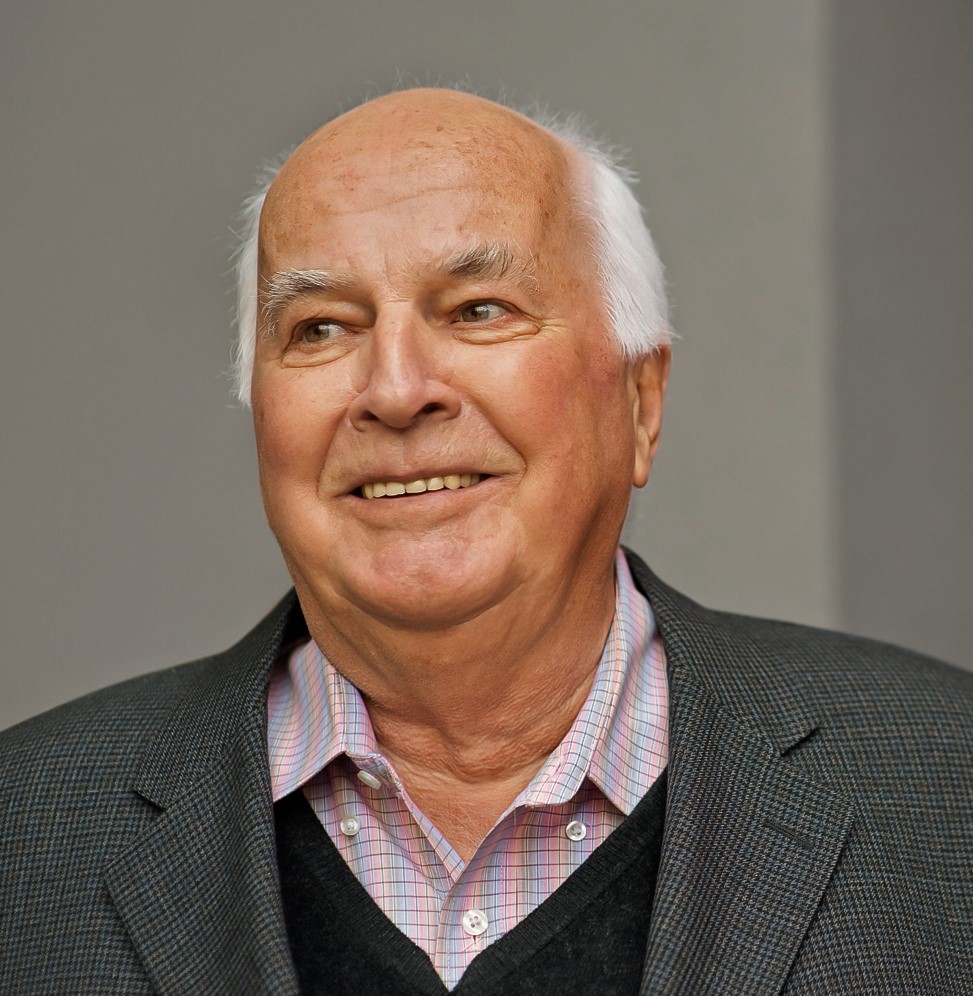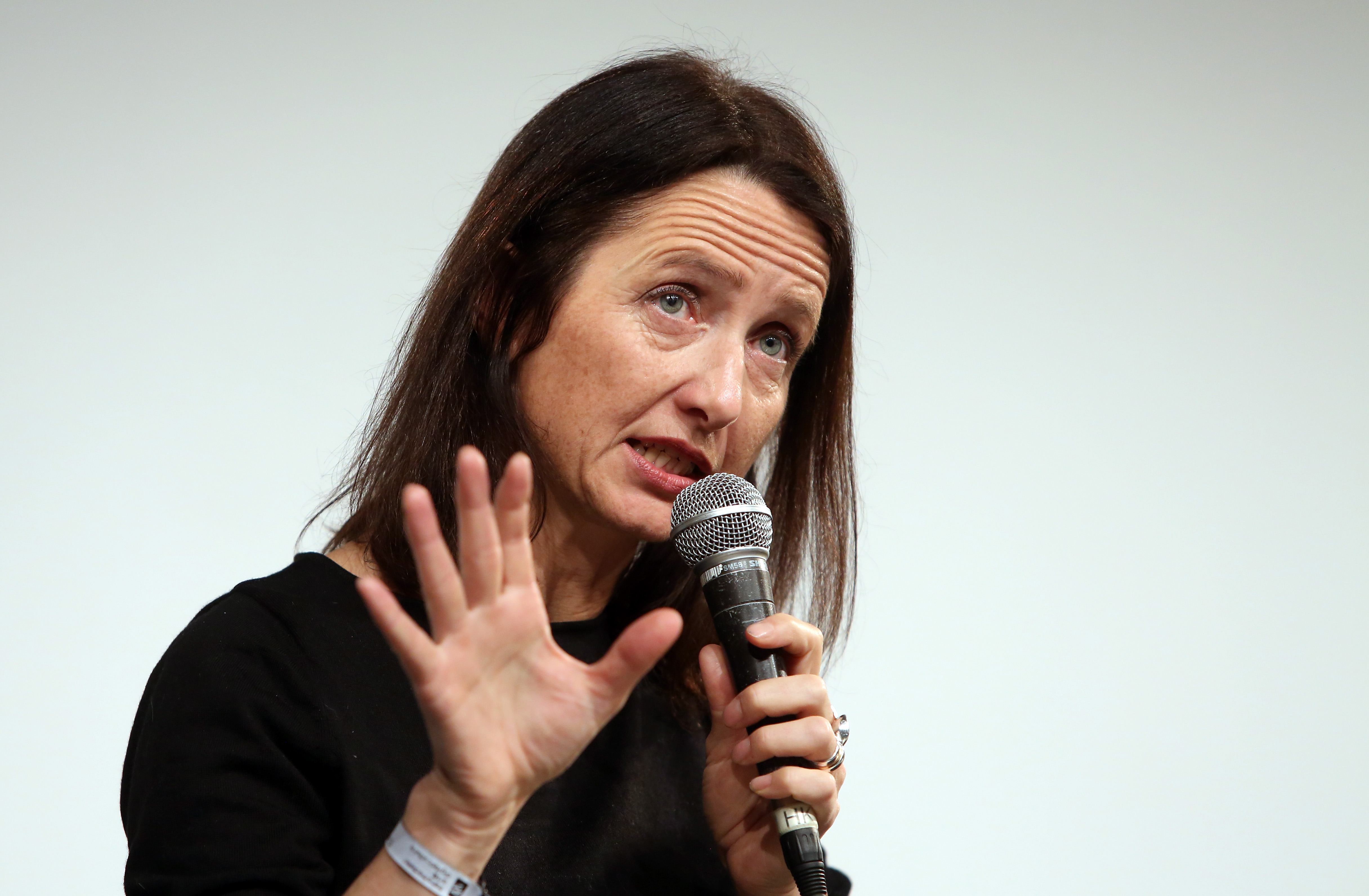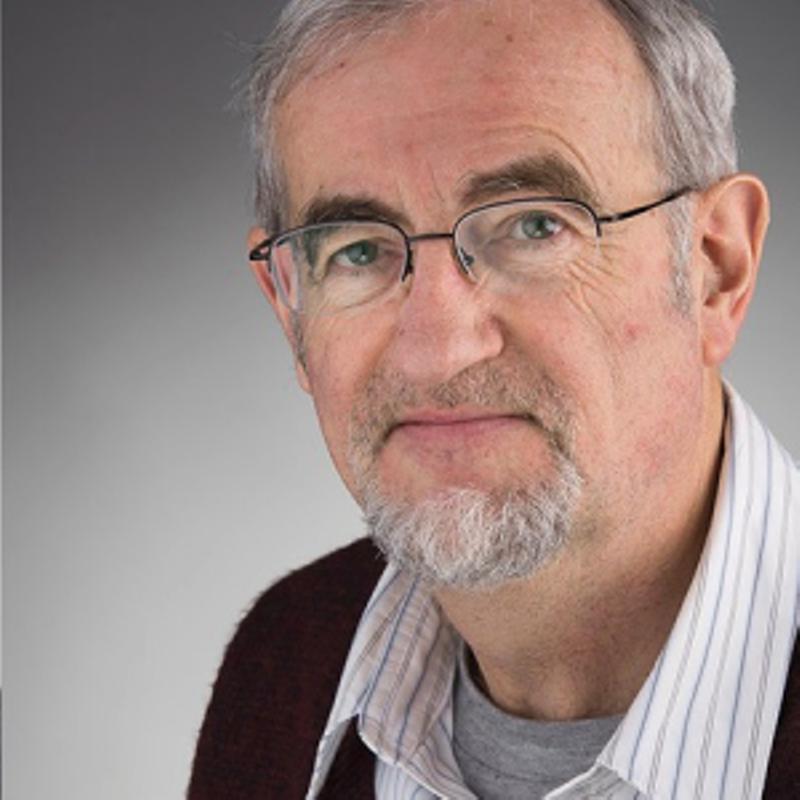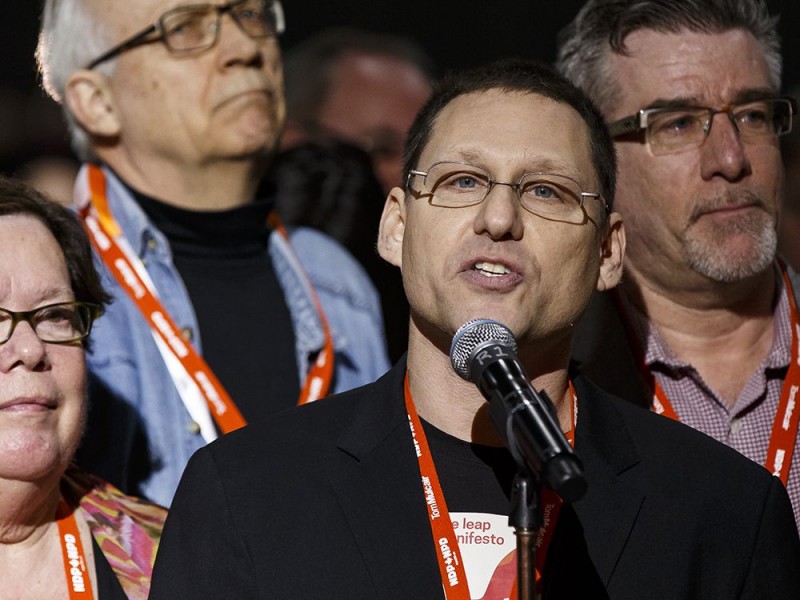What fraction of Canadians have a positive view of socialism? Would you have guessed well over half, as a 2019 poll found?
This political and economic alternative to capitalism is gaining traction particularly among younger people, not only in this country but the U.S. As one U.S. broadcaster’s website headlined in 2020 “millennials support socialism because they want to make America great — but for everyone.”
We’re seeing this rising interest in socialism at a moment when our politics are becoming more divided and volatile. Why? Because the political narrative — neoliberalism — that has dominated the Global North since the 1980s isn't working. As McMaster political scientist Stephen McBride defines it, neoliberalism in principle "emphasizes individualism over social or collective interests; the superiority of markets (in reality, the powerful actors that dominate them) over public decision-making; the rule of law; and the need for a minimal but strong state to defend private property rights and the capitalist system."
But neoliberalism has hardly created the era of peace and freedom promised by politicians like Margaret Thatcher, Ronald Reagan and Stephen Harper. Instead, our planetary civilization faces intersecting crises of ecology and climate, public health, democracy, inequality and international order. McBride is hardly alone in pointing the finger at neoliberal policies like tax-cutting, public service-gutting and privatization.
What then, can socialism offer in response to the predicament in which we find ourselves? That was the theme of an online conference held in October, by the SFU Institute for the Humanities (through the Joanne Brown Symposium on Violence and Its Alternatives endowment), the SFU Labour Studies Program and the SFU VanCity Office of Community Engagement.
That overarching question sparked many related ones. But before I share those conversations, best to get some terms straight. From the start, the conference organizers (Ian Angus, Am Johal, Cathy Walker, co-ordinator Alicia Massie and I) emphasized democratic socialism, committed to electoral legitimacy and government with the consent of the governed, rather than dictatorial forms like the former Soviet Union. But we also emphasized socialism, system change beyond capitalism. Like "democracy," ten analysts could offer 20 different definitions.
McBride's is as good as any: it means subordinating the economy to the service of a society no longer driven by the endless drive for profit. State planning and public ownership of major industries, to varying degrees, are tools towards "a prosperous, relatively egalitarian society characterized by full employment, security, decent jobs and well-organized public services to meet social needs — health, education, ageing and housing."
That's distinct from social democracy, which may advocate important reforms, but accepts the fundamentals of capitalism and their permanence. There are democratic socialists within the NDP, the main institution of the anglo-Canadian left, but they are effectively quarantined. The party's leadership and official policies are at most social democratic.
Democratic socialism has persistent Canadian roots, as Mount Royal historian Roberta Lexier reminded the conference. In the midst of the Depression, the Regina Manifesto of the Co-operative Commonwealth Federation (the NDP's predecessor) promised to "eradicate" capitalism, calling for "economic planning [to] supersede unregulated private enterprise and competition." In the aftermath of 1960s cultural and political upheaval, overseas war and domestic racial injustice in the U.S., a radical faction in the NDP — nicknamed the Waffle — called for "an Independent Socialist Canada.” Economic nationalism was the order of the day.
The issues our group grappled with at SFU have more to do with the future than the past, however. Where's the transformational energy needed in an era of ongoing emergency? Has Canadian democratic socialism revitalized itself? How can we articulate socialist ideals and practicalities to the wider public in an era when the topic remains taboo for most corporate media?
Our conference brought together leading progressive politicians, movement organizers, policy researchers and academic specialists to join four diverse panels — on democratic socialist philosophy, the environment-economy relationship, new challenges and political strategies.
Not everybody stuck to the questions posed in our announcement in The Tyee and elsewhere. Several scheduled speakers could not attend. Nobody offered detailed blueprints; who could be expected to reinvent the world in a 15-minute presentation, even if there's a Q&A? Rather, this was a high-flying discussion of principles and approaches, which I'm grouping into the following themes.
Peace and Internationalism
Foreign policy was not a major theme at the conference. But open-ended conversations gave a hint that democratic socialists are as flummoxed as anybody by the realities of the new world disorder, brought to a boil by Putin's invasion of Ukraine.
Dimitri Lascaris, a former challenger for the national Green Party's leadership, called for a negotiated settlement of the Russia-Ukraine war, rather than escalation that could "snare us all in a nuclear holocaust." The chair of the BC NDP's standing committee on environment and economy, Ashley Zarbatany, responded "as an Indigenous person, I stand in solidarity with the Ukrainians, because I know what it's like to be the victim of genocide by imperialists."
Neither the NATO triumphalism evident in much of the western media, nor the NATO skepticism of Yves Engler, Canada's version of Noam Chomsky, was much evident. What would former NDP MP Svend Robinson have said, had he been able to accept our invitation (he now works overseas)? He frequently called for Canadian withdrawal from NATO.

Democratic socialists continue to oppose militarism, as an ideology and policy. The Canadian Foreign Policy Institute's director, Bianca Mugyenyi, called out the military as "the biggest institutional polluter in Canada," emphasizing its connection with climate crisis, imperialist wars of aggression and huge price tags. The federal government's proposed procurements of F-35 fighter jets and 15 new warships come with initial sticker prices of $19 billion and $100 billion respectively. Instead, says Mugyenyi, we need "a foreign policy that centres peace, justice and the planet.”
Quoting from a classic statement of the postwar Canadian left — A Socialist Takes Stock, by his grandfather David Lewis, a founder of the NDP — former broadcaster and federal NDP candidate Avi Lewis identified one of democratic socialism's main goals as "a peace based on freedom and equality within and… among nations." Formulated during the height of the Cold War, that view falls far short of the defunct Waffle group's anti-U.S. imperialism. But Avi Lewis’s point was that even such vague internationalism finds little space today in "our national political and cultural conversations."
Perhaps democratic socialism's most potent contribution to global peace and security comes from another direction. Feminist economist and SFU professor emeritus Marjorie Griffin Cohen argued that a "care economy" requires challenging international trade agreements that are biased against the public sector provision of goods and services. She added that such agreements are a relationship between social classes, not just countries.
The point could be expanded: international stability requires a less predatory, more just and ecologically sustainable international economic order. And it's one to be forged through the balance of political forces within countries, not just negotiations between them.
Redesigning the Economy
What does a society that is just, ecologically viable and economically efficient look like? Speakers offered not a single model, but well-researched and visionary alternatives.
Shannon Daub and William Carroll, co-directors of the Canadian Centre for Policy Alternatives' Corporate Mapping Project, spoke of the urgent need for a less ecologically destructive post-carbon economy. Economic policy is intimately connected to social relations and political power. By contrast with the "shallow" social democratization of parties like the NDP, Carroll calls for a "deep" version that makes good on UN declarations on civil rights, economic, social, cultural and Indigenous peoples' rights, and a healthy environment. This, to be paralleled by double decolonization — Indigenous self-determination, as well as rescuing our daily lives and the public sphere from consumer capitalism and the commodification of everything.
Other speakers also challenged fundamental assumptions about economic policy and structures. Cohen argued cogently that effective climate policy and a "care economy" are complementary. Existing climate policy is failing, she argues, because it is based on a market approach and existing economic structures, rooted in gender-biased assumptions about economically productive activity. We'd be better off recognizing the paid and unpaid work, mostly by women, in sectors like health, education and child care; increasing spending on care to the average of other rich countries; making the care economy "a significant feature of planning for economic growth," growth that should be diverted to the job-intensive services that people need rather than the production of yet more stuff.
Economist Jim Stanford, director of the Centre for Future Work, agrees. Sort of. He challenges environmentalists who oppose growth as such. Rather, the problem is capitalist-style growth. We need not less, but more work and production, in appropriate activities, along with planning and public ownership to help direct that work to meet human and ecological needs. Stanford points out that fossil fuel industry employment constitutes now just one per cent of Canadian jobs. It could be wound down by just one billion dollars and 8,000 jobs a year, over half through retirement, over a 20-year transition to renewable energy.
Planning? Sounds archaic. Positively 20th-century. It's "somehow a dirty word" when it comes to state mechanisms, noted Avi Lewis. But it's "alive and well in the service of technologized Uber capitalism," where companies like Amazon and Walmart "plan everything down to the microchip level."

Unabashed urban planner Bob Williams, the minister-of-nearly-everything in the Dave Barrett BC NDP government of the 1970s, reprised his recent political memoir. He spoke glowingly of co-operative enterprises, and the notion of land and resources as sources of "rent" to finance public services. We need living examples of a better world, and Williams provided several: the city of Bologna, Italy, with its deep institutional networks and culture of community co-operation; and closer to home, the Columbia Basin Trust, which obtains benefits for Kootenay communities from the use of their land and water.
Mary Mellor, emeritus professor of alternative economics at Northumbria University, offered a sophisticated argument for fundamentally democratizing the creation and circulation of money. She challenges the neoliberal notion that the market is the source of wealth, and that the state is a burden upon that market. Instead, the state should become the prime creator of money to provision social needs, subordinating the profit-oriented private banks.
Media and Democracy
Democratic socialists haven't forgotten about the ideological power of corporate media.
Much of the British press enthusiastically exaggerated the flaws of Jeremy Corbyn, the Labour party's most radical leader in a generation. While not a perfect statesman (who is?), the extent of demonization amounted to his "political assassination," according to some analysts.
Here in Canada the press often cheerleads for fossil capitalism. Shannon Daub cited a recent Globe and Mail editorial premised on "the ludicrous fiction" that Canada can show climate leadership while developing the oilsands "carbon bomb" — by simply ignoring the emissions produced by exported oil burned elsewhere.
Radically progressive parties will rarely get an easy ride in media connected by ownership and commercial interests to the corporate elite. Developing their own media and messaging strategies are typical responses by progressives. Fair enough. But Natalie Fenton, professor of communication at Goldsmiths, University of London, suggests something more radical: redesigning the entire media system according to democratic socialist principles.

Facing concentrated ownership and control in both legacy and digital media in the U.K., Fenton co-founded the Media Reform Coalition, advocating and campaigning for "a media commons," broader than public broadcasting.
"Rather than just interacting with people as passive audiences, people would make decisions about how these organizations are run…. We also need to see something like a British digital co-operative… an entirely different symbolic system that is driven by… principles of structural socio-economic parity, substantively meaningful democracy, and worker and environmental sustainability" — a media system where pluralism and conversation override commercial profits.
Canada has valuable media advocacy groups, like Open Media, and Friends of Canadian Broadcasting. But we don't yet have a media reform coalition with a vision as broad as Fenton's. For Canadian democratic socialism, that's an innovative idea.
Strategizing
How should the promise and the vision of democratic socialism be realized? How should socialists confront the upsurge of far right populism and outright fascism in contemporary notional democracies?
The emergence of the far right in Canada should not have been a surprise. Matthew Green, NDP MP for Hamilton Centre since 2019, described his city as "the canary in the coal mine.” Coming to his politics through observation and experience rather than theory, Green told the conference of "the suffering and misery" wrought by the structural inequalities of colonialism and capitalism — low levels of household income, high childhood poverty, social influences on health that differ by postal code. Exploiting Hamilton's industrial decline, semi-fascist groups have been organizing for decades, said Green, so that Canada is actually "a net exporter of white supremacy around the world."
"We are at a moment of deep economic frustration and isolation," he added. "People feel alone and are looking to be part of something."
So, the "freedom" convoy that horn-honked to Ottawa last winter didn't come out of nowhere. Dimitri Lascaris described his conversations with some of its members. He sympathized with their distrust of government and Big Pharma. He found camaraderie and many messages of love, he said. He wants to find common ground with the political right on some issues. But Zarbatany reminded him that some people, including racialized women like herself, do not feel safe in spaces dominated by hypermasculine hate.
With characteristic bluntness, Bob Williams went further: "Where are you gonna find any brains in that kind of right wing mob? We've got nothing to talk to them about. Absolutely nothing."
But there was near unanimity on the need to offer a more hopeful political alternative, addressing some of the grievances that feed far right pseudo-populism — excessive corporate power, profound economic inequality and the disconnect between elected politicians and the people they claim to represent.
Whether to make that offer within or outside established political institutions, however, was sharply contested. Political historian Ben Isitt described the BC NDP's disqualification of veteran climate and social justice advocate Anjali Appadurai from contesting the party's leadership, as the biggest crisis in its history. How should activists respond?
Zarbatany spoke for a "grassroots revitalization" of the BC NDP, and returning it to its "democratic socialist roots," organizing at the constituency association level with the help of the thousands of new members recruited by the Appadurai campaign.
By contrast, Lascaris has had enough after "years of trying to change the system from within…. Established political parties are constructed in such a way as to stifle any revolutionary movement… I'm deeply skeptical that we can [achieve transformational changes] through electoral politics."
Even working within the system, it's not obvious which party provides the best platform for ecosocialist organizing. Is it worth trying to revitalize the NDP, Isitt asked, given its apparent drift towards becoming a liberal rather than democratic socialist or even social democratic party. Or should the thousands of abruptly disenfranchised Appadurai supporters join the Green Party en masse and help it gain enough seats to hold the balance of power?
But the strategic contrasts shouldn't be exaggerated. Most of the speakers heralded a diversity of tactics. Find the synergy between issue-focussed social movements, and election-oriented political parties. Grassroots organizing, rather than simply electioneering, is key.
Philosophically, there were other strands of agreement. Almost all the speakers recognized that, as Avi Lewis put it, "colonialism is a daily ongoing phenomenon, where resources continue to be stolen from under the feet of people who have stewarded them for countless generations.... How do we fit that into the democratic socialist response?" he asked. By restoring land to Indigenous jurisdiction, redirecting capital from pipelines to Indigenous communities, restoring the natural landscape, enabling Indigenous people to live on the land without being poisoned.
Not surprisingly, neoliberal global capitalism was pinpointed as a root cause of global crises, but speakers showed little sympathy for social democracy. Social democratic parties "capitulated to neoliberalism long ago," said McBride. Their radicalism "lies in the past, not in the present," and they show no signs of "any significant rethink."
Historian Lexier might agree. In the past, such parties had placed "reasonably radical left wing perspectives into national public debates," but "now the NDP largely fails to do this."
If this snapshot of leading thinkers and actors is an indication, Canada's left has moved beyond the technocratic centralization of the Regina Manifesto, and the Waffle's silence about the environmental damage and the violent colonization of Indigenous peoples underlying the country's modern economy. (Environmental crisis and decolonization are emphasized in the landmark Leap Manifesto, passed by the 2016 federal NDP convention but sidelined by the party leadership.)
Democratic socialism is a big tent. But behind differing emphases and strategies, most participants share the principles of extending democracy, viewing social well-being as a collective responsibility and the economy as a sphere that should be subject to public decision-making. In a 2006 essay, Mary Mellor suggested that such commitments make democratic socialism better equipped than other contemporary political philosophies to deal with a new era of ecological limits and democratic crises.
None of the speakers expressed polyannish utopianism. Several confessed their struggle with pessimism. Many themes, from foreign policy, to transforming the colonialist state, to reconciling democratic participation with economic planning, were not yet adequately addressed. But they showed that Canada's left is lacking, not political imagination or intellectual vitality, but a proportionate voice in the public arena. The conference videos are to be posted at the SFU Institute for Humanities website — and the conversation will doubtless continue. ![]()
Read more: Rights + Justice, Politics

















Tyee Commenting Guidelines
Comments that violate guidelines risk being deleted, and violations may result in a temporary or permanent user ban. Maintain the spirit of good conversation to stay in the discussion.
*Please note The Tyee is not a forum for spreading misinformation about COVID-19, denying its existence or minimizing its risk to public health.
Do:
Do not: